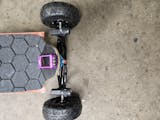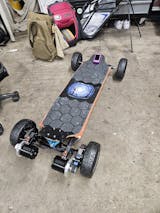
CPSC
The United States safety standard for adult and kid helmets. This makes sure the helmet is stable, strong, reduces impact force, and doesn’t obstruct vision.

EN 1078
This is a European safety standard for adult and kid cycling, skateboarding, and roller skating. These tests simulate all types of weather to make sure helmets reduce impact force, are comfortable, and won’t impair hearing or vision.

EN 1077B
This is a European safety standard for adult and kid helmets made for skiing and snowboarding. This is similar to 1078 but differs from in how its tested to ensure you’re still safe even if you do a little accidental back country route...

EN 1385
This is a European safety standard for adult and kid helmets made for canoeing and white water sports. This makes sure the helmet reduces impact force, won’t interfere with vision, floats after being submerged, and fits properly.

MIPS
Rotational motion (like how you fall) can cause brain injuries. The yellow low friction layer allows the helmet to slide 10-15 mm in all directions, reducing rotational motion to the brain during impact.

NTA 8776
Rotational motion (like how you fall) can cause brain injuries. The yellow low friction layer allows the helmet to slide 10-15 mm in all directions, reducing rotational motion to the brain during impact.



